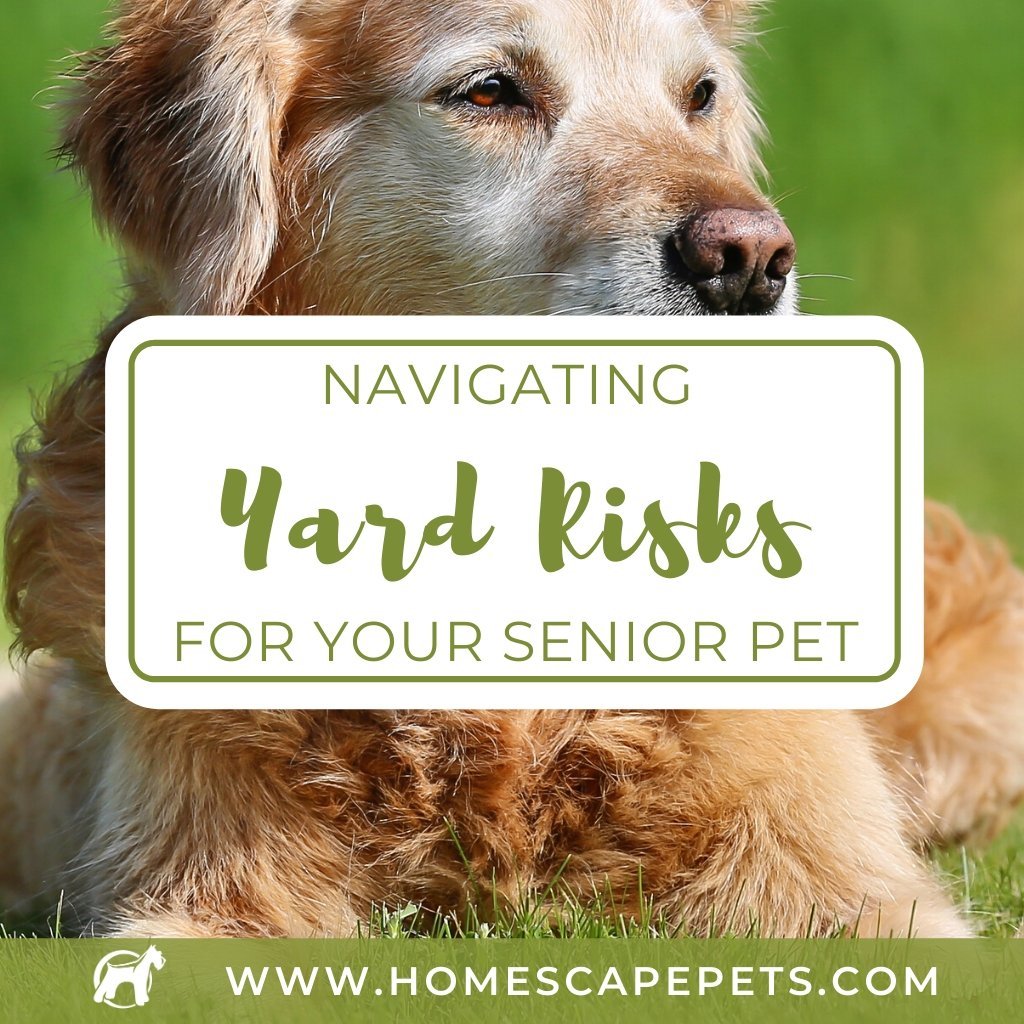
Navigating Yard Risks for Your Senior Pet
Share
Fenced Yard or Not?
Generally speaking, it is always a good idea to have a fenced-in yard for your dog, but it is essentially a requirement if you allow your dog to be off-leash on your property. Remember, this is not just to make sure that your dog doesn't run away, but to keep out other potential predators, such as coyotes, foxes, or other large animals. Remember, if attacked, your senior animal may be less able to defend themselves or run away.
Weeds and Plant Life
While senior dogs have hopefully learned which plants not to eat, this is by no means a guarantee, and their older bodies may mean that they are less able to fight off toxic plants. Make sure to keep an eye on your house, research potentially poisonous plants or weeds and use pet-friendly pesticides. Knowing the common weeds in your area will help you recognize what to watch out for. For the sake of protecting our pets, you must keep an eye out for plants that could get them sick.
Trip and Fall Hazards
Older pets are more likely to injure themselves and less likely to recover from those injuries. Unfortunately, this may be the area where injuries are most likely. Thankfully, there are many ways to pet-proof your lawn as much as possible. Make sure to regularly inspect your lawn for potential hazards, such as holes or sharp, hidden branches. If your pet has a bench or tall rock that they climb on frequently, consider purchasing a climbing aid, like a stool, to help them get where they are trying to go.
Part of being a pet owner means caring for them their entire lives, and there is no doubt that senior animals require special attention. Taking the above three steps will help make sure that you and your beloved animal can enjoy nature together in a way that is healthy and safe.
Senior pets often have trouble moving around the yard, among other places. If they have trouble moving due to stiff joints, we recommend trying our Mussel Mobility™ Green Lipped Mussel & Turmeric for Pets, which is formulated to help with healthy joint movement.

